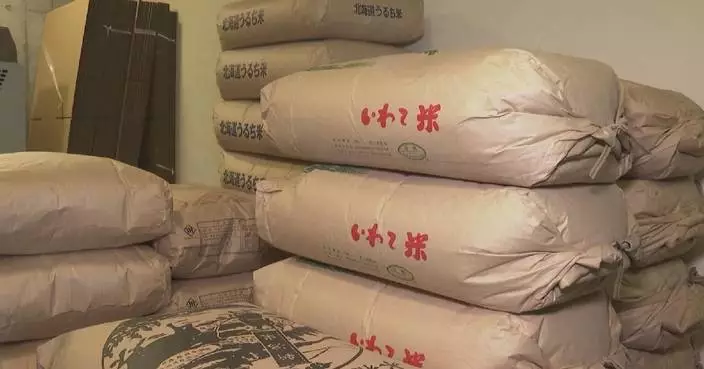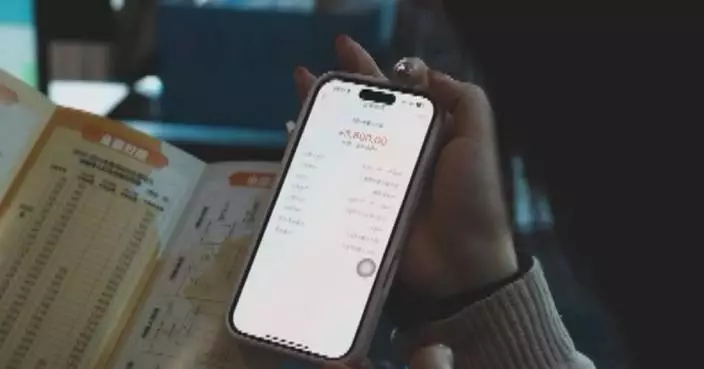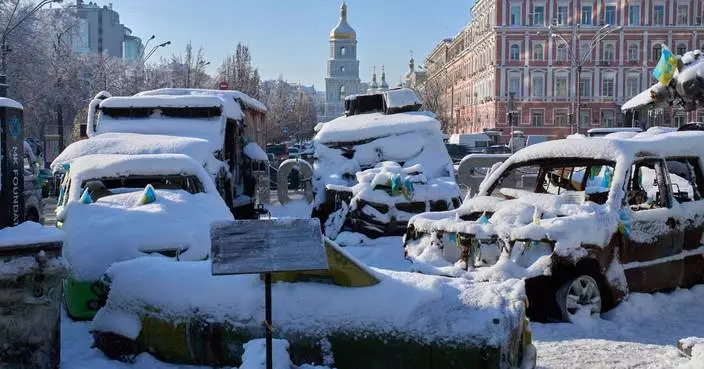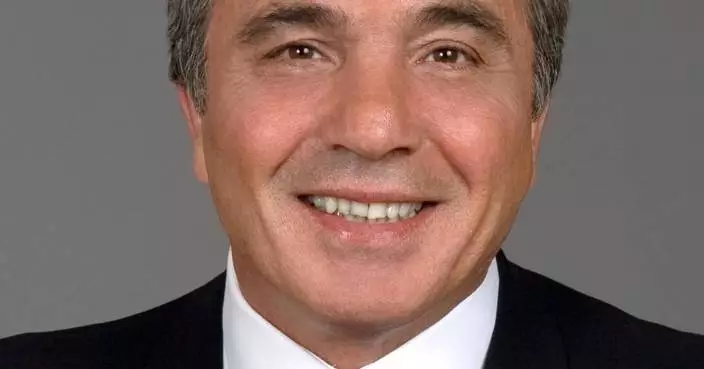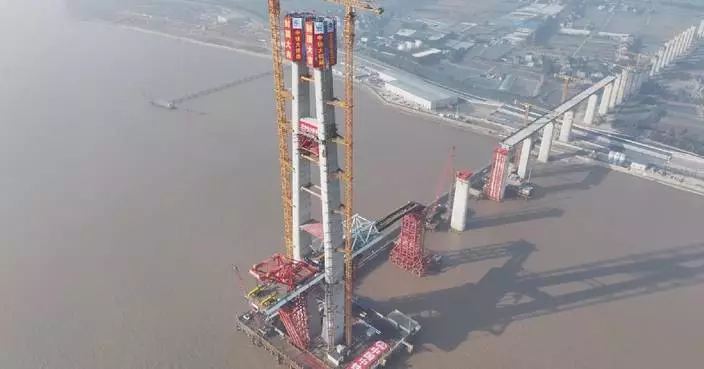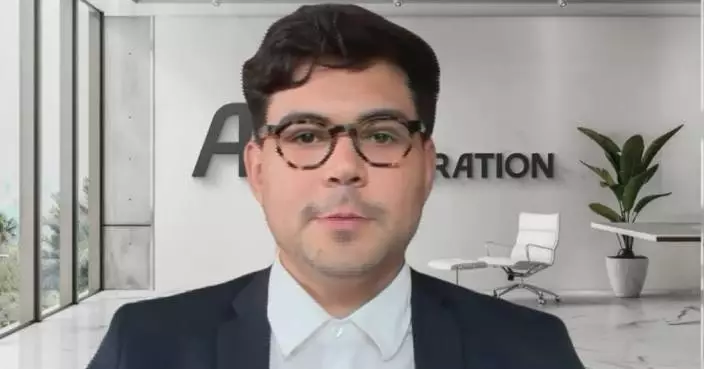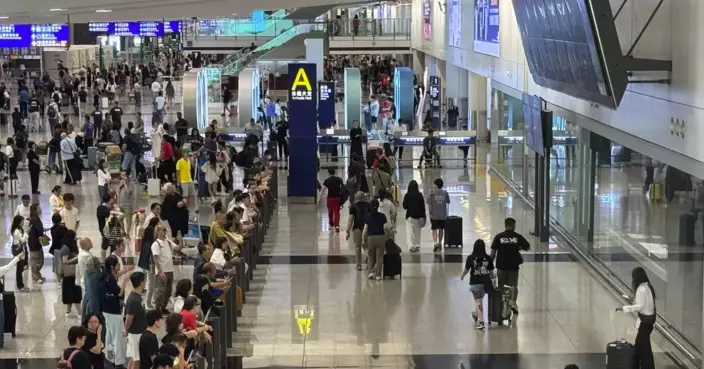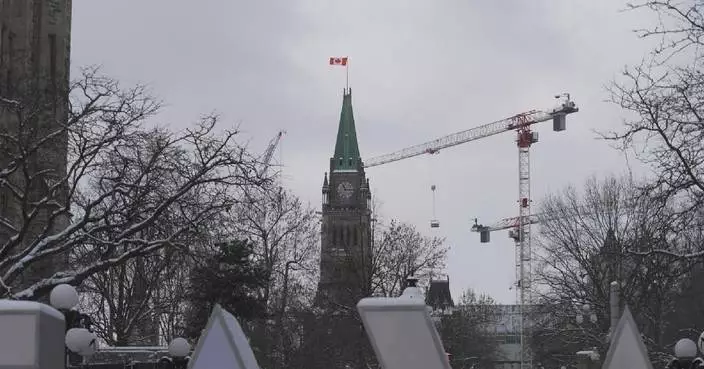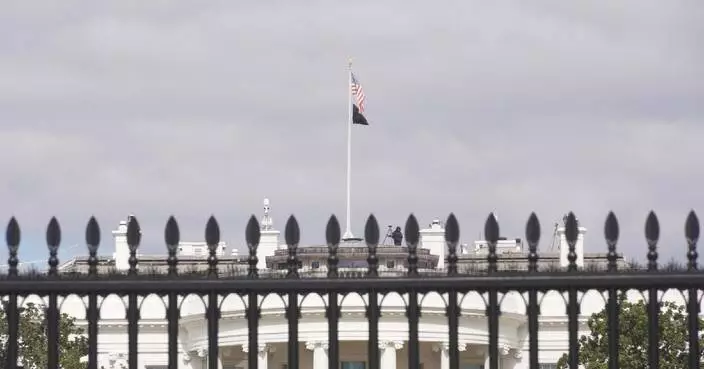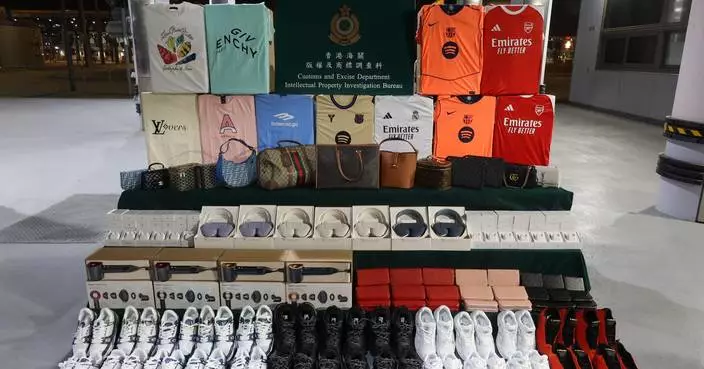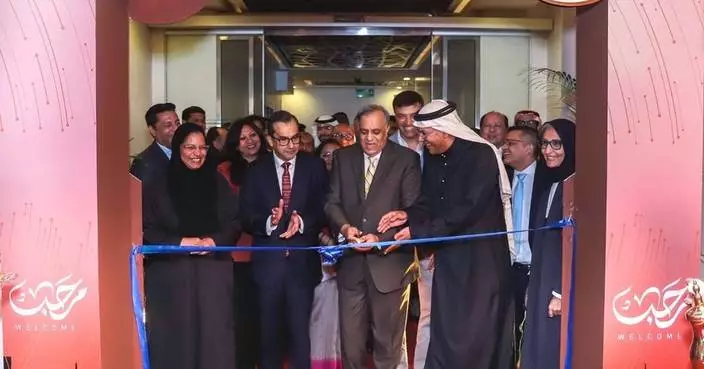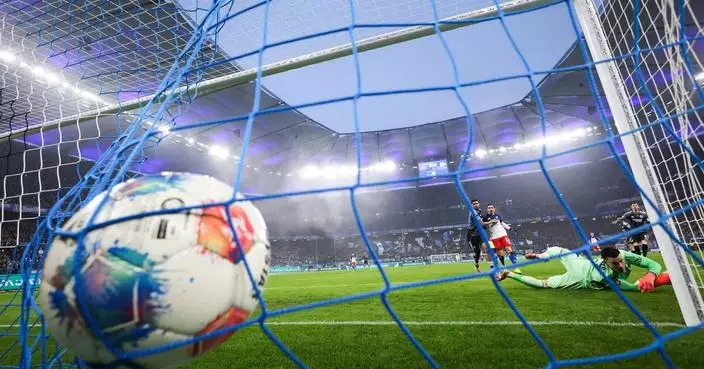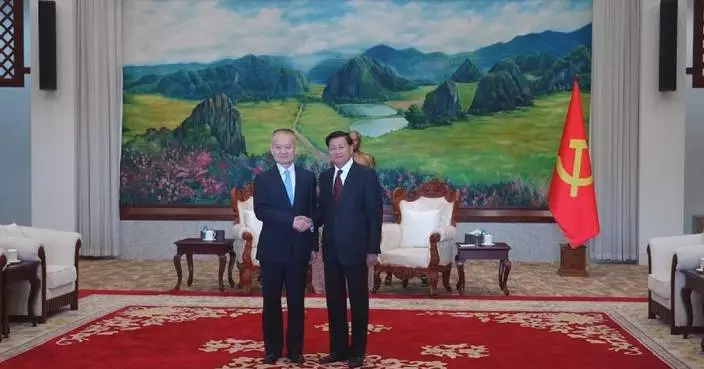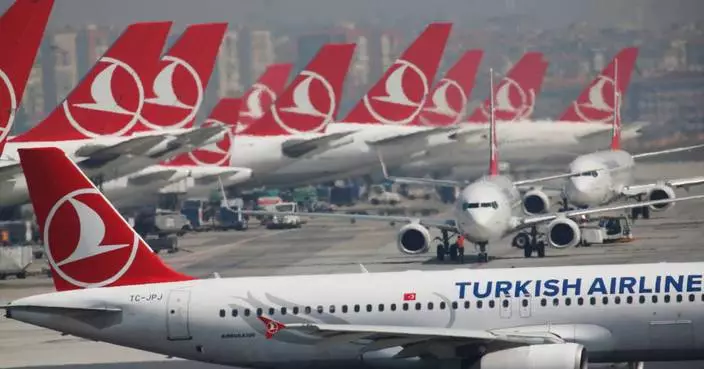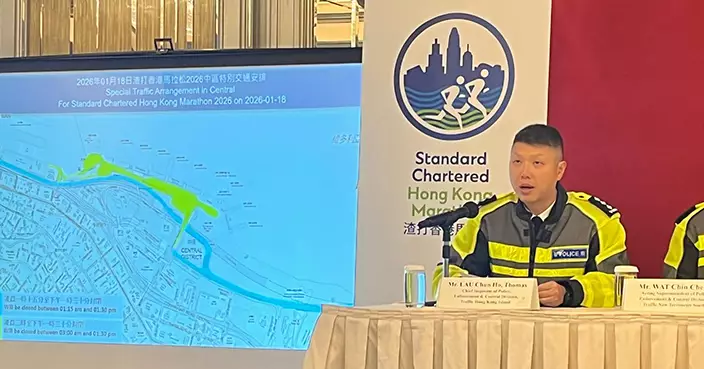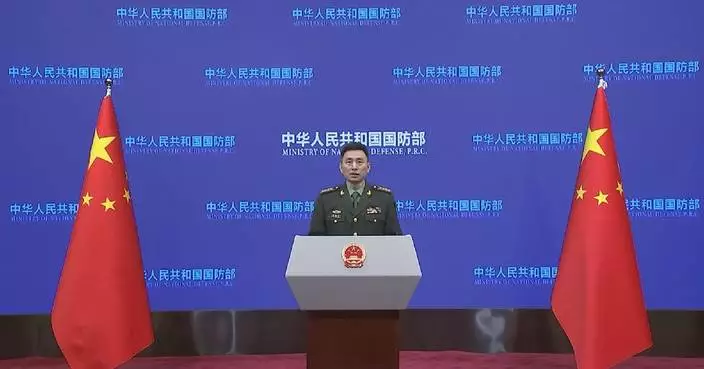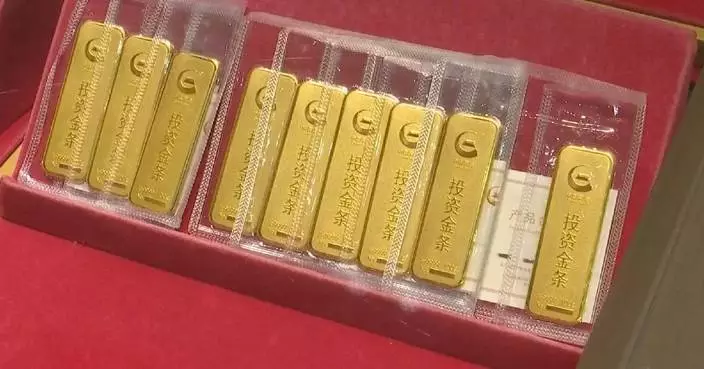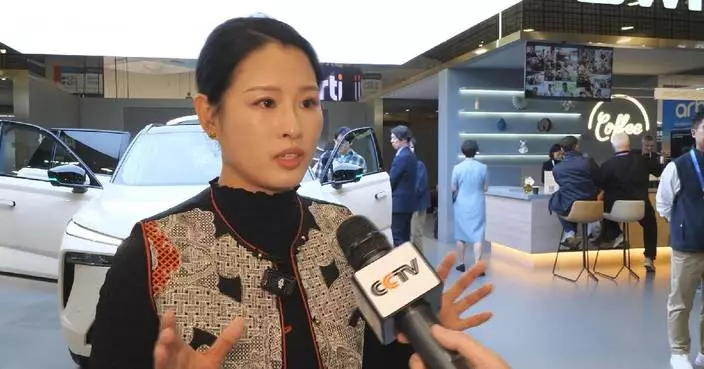Feature · News
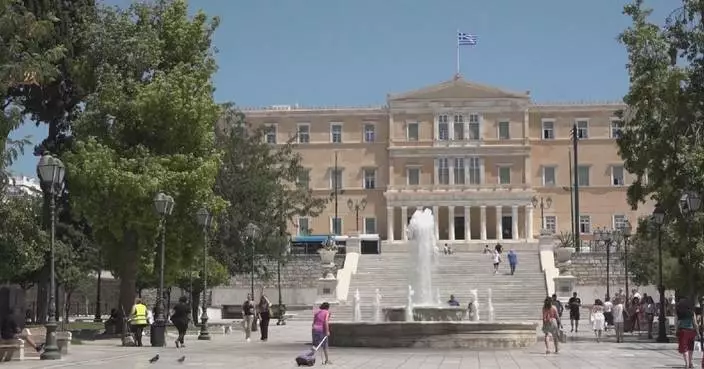
US statements on Greenland as equivalent to an act of war: Greek resident
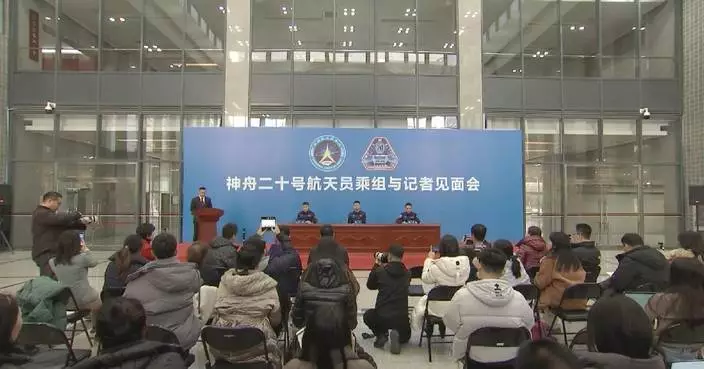
Shenzhou-20 astronauts share experiences after safely returning from debris incident
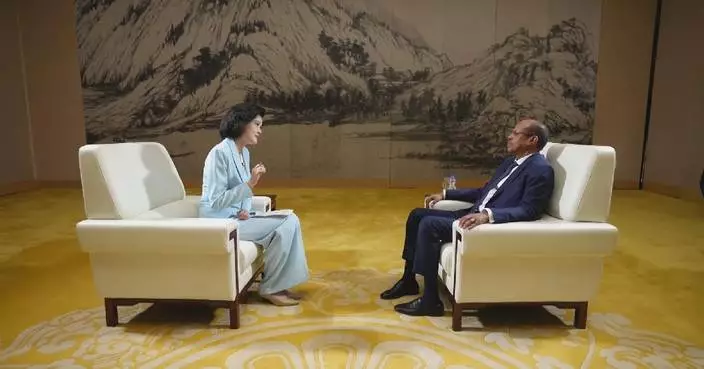
AU chief calls China "true friend" after zero‑tariff pledge to Africa
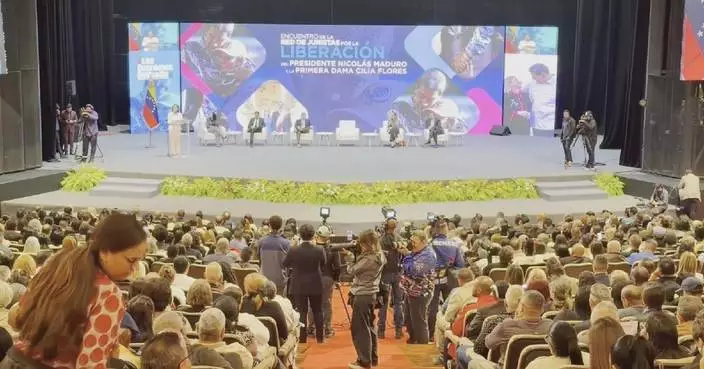
Venezuelan legal professionals condemn US, call for respect for sovereignty
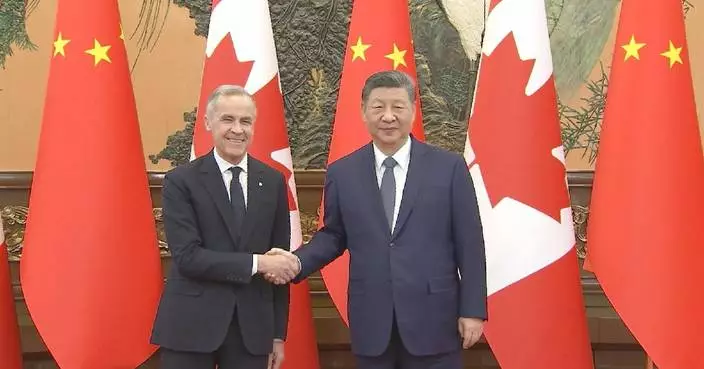
Canadian PM concludes China trip with agreements on trade, tariff reduction

Iran's Internet shutdown inflicts economic losses
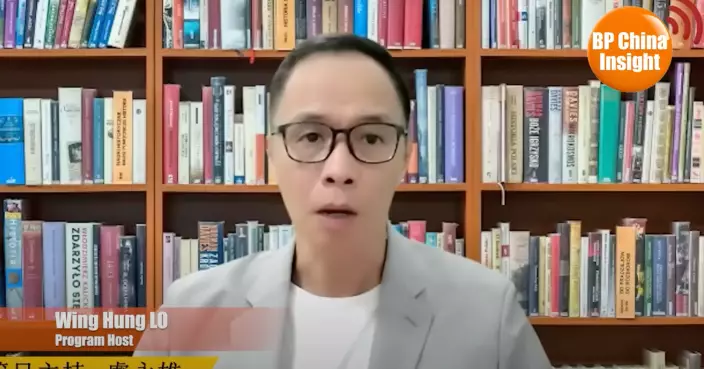
BP China Insight: Japan wants to launch a deep-sea rare earth mining plan. Will it succeed?

Photos of tensions between federal officers and locals in Minneapolis
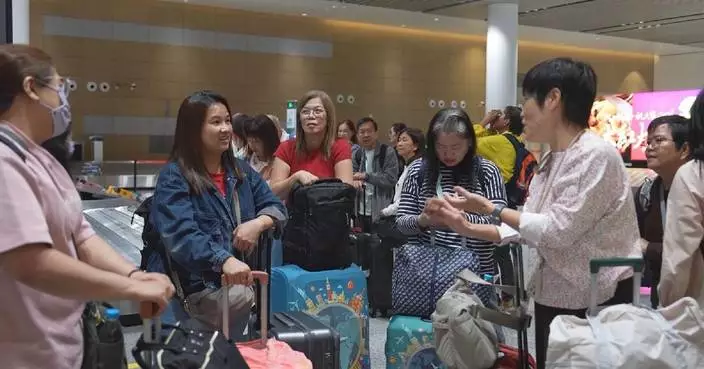
Hainan sees sharp increase in foreign travelers entering visa-free
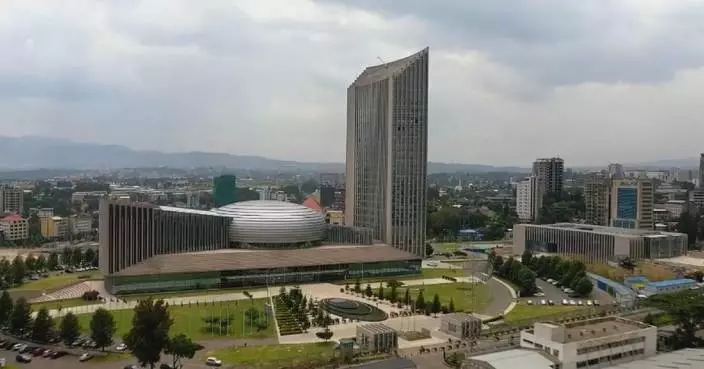
AU chief highlights Agenda 2063 vision for integrated, peaceful, prosperous Africa

Trump confidants, former British leader and Middle East officials are at forefront of US Gaza plan

Climate activist predicts high electricity prices and Trump's attacks on green energy will hurt GOP
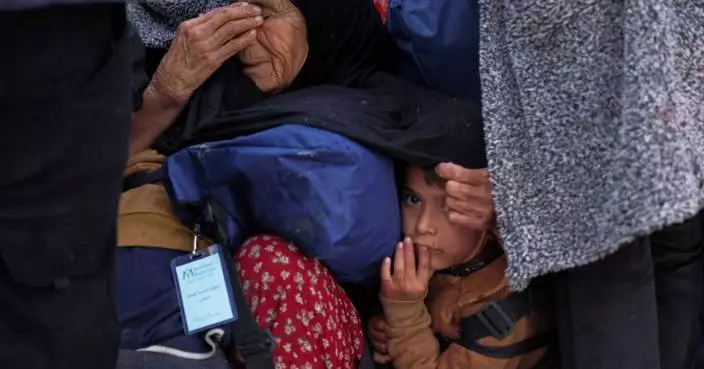
Photos show Syrians returning home following clashes between government forces and Kurdish fighters
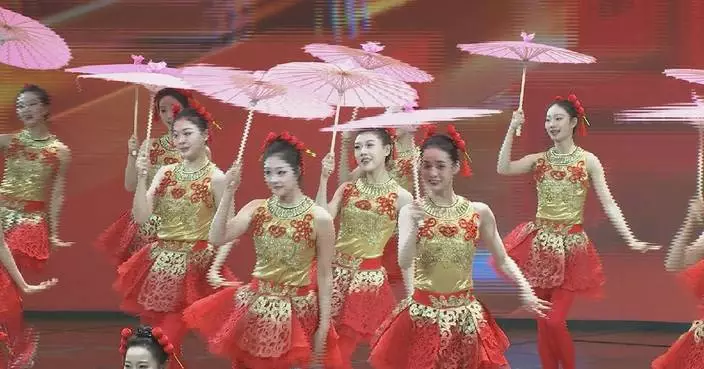
CMG holds first rehearsal for 2026 Spring Festival Gala

Egypt and Sudan welcome Trump's offer to mediate Nile River dam dispute
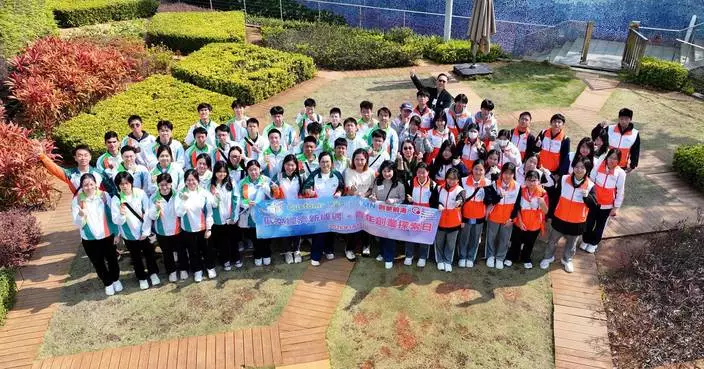
Customs YES and QMN Host Youth Entrepreneurship Exploration Day in Shenzhen

BP China Insight: Japan wants to launch a deep-sea rare earth mining plan. Will it succeed?

Photos of tensions between federal officers and locals in Minneapolis
Hainan sees sharp increase in foreign travelers entering visa-free
AU chief highlights Agenda 2063 vision for integrated, peaceful, prosperous Africa
US statements on Greenland as equivalent to an act of war: Greek resident
Shenzhou-20 astronauts share experiences after safely returning from debris incident
AU chief calls China "true friend" after zero‑tariff pledge to Africa
Venezuelan legal professionals condemn US, call for respect for sovereignty
Canadian PM concludes China trip with agreements on trade, tariff reduction
Iran's Internet shutdown inflicts economic losses

Trump confidants, former British leader and Middle East officials are at forefront of US Gaza plan

Climate activist predicts high electricity prices and Trump's attacks on green energy will hurt GOP

Photos show Syrians returning home following clashes between government forces and Kurdish fighters
CMG holds first rehearsal for 2026 Spring Festival Gala

Egypt and Sudan welcome Trump's offer to mediate Nile River dam dispute

Customs YES and QMN Host Youth Entrepreneurship Exploration Day in Shenzhen
Feature·Bloggers
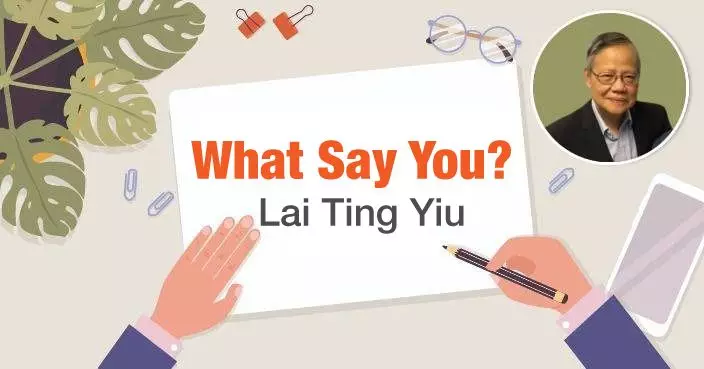
【What Say You?】America's Passport Prestige Is Tanking—And It's No Accident

【Deep Throat】Trump's Latest Iran Tariff Bluff: China Sees Right Through It

【Ariel】Jimmy Lai’s “Solitary” Twist: Judges Say He Asked For It

【What Say You?】Accomplice Witness Chen Zihao: Family Stalked, Fears Black Bloc Revenge After Release

【Deep Blue】International Laws? You Kidding Me?

【Bastille Commentary】Chicken-hearted Conservatives: Sanctioning Hong Kong Judges While Trump Runs Wild
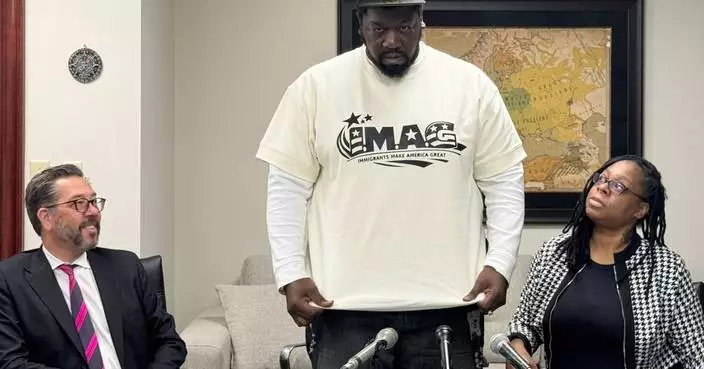
Pro- and anti-ICE demonstrators face off during Minneapolis immigration crackdown
- European Union and Mercosur bloc of South American nations sign landmark free trade agreement
- NASA's new moon rocket moves to the pad ahead of astronaut launch as early as February
- Thousands of fans celebrate life of legendary Grateful Dead guitarist Bob Weir in San Francisco
- Photos show anti-ICE crowd chase off pro-ICE demonstrators from Minneapolis streets
- Virginia tradition calls for morning suits at an inauguration. But Spanberger switched things up
- Thousands rally in Serbia as students vow to continue fight against corruption
- Mediacom Communications Announces Visitation and Funeral Arrangements for Rocco B. Commisso
- Iran's leader calls Trump a 'criminal' for backing protests and blames demonstrators for deaths
- Blast of winter weather hits Midwest and East Coast and could bring snow to Florida

South Africans rally in solidarity with Venezuela against U.S. aggression
- Trump says U.S. to impose tariffs on 8 European nations over Greenland
- Russia claims full control of Kupyansk as Ukraine reports continued fighting
- Trump threatens nations not backing his Greenland plan with tariffs
- Internet blackout recurs in Iran after brief restoration
- China to empower innovation, target social needs in 2026 sci-tech push: minister
- China's Yiwu witnesses record-high foreign trade in 2025
- Xinjiang's Bosten Lake turns into vast winter wonderland
- China power consumption surpasses 10 trillion kWh in 2025: NEA
- African nations aim for industrialization, agricultural transformation, trade growth in future development: AU Commission chief
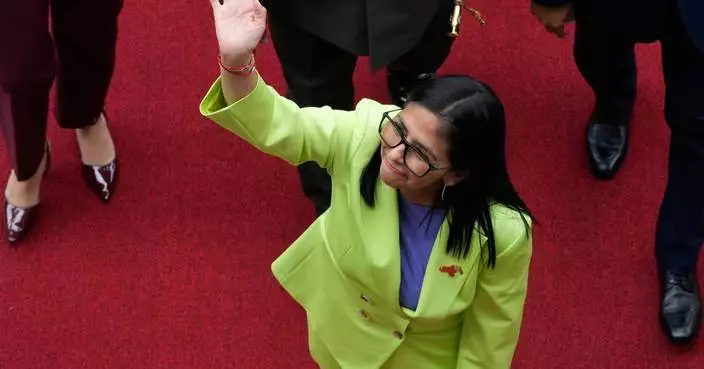
AP obtains documents showing Venezuelan leader Delcy Rodríguez has been on DEA's radar for years
- Trump says 8 European countries will face 10% tariff for opposing US control of Greenland
- Photos show Greenlanders brave near-freezing temperatures to march against Trump’s takeover threats
- Why US cities are reverting 1-way streets back to their original 2-way design
- As Trump's deadline for a cap on credit card rates looms, banks have only questions and no answers
- How abortion coverage threatens to prevent a congressional deal on health care subsidies
- Baidu's Apollo Go and K2's AutoGo Commence Fully Autonomous Ride-Hailing Service on Yas Island, Announce Phased Expansion Across Abu Dhabi
- Viettel Breaks Ground on Vietnam's First Semiconductor Chip Fabrication Plant
- Fiorentina Announces the Passing of Rocco B. Commisso
- Mediacom Communications Announces the Passing of Rocco B. Commisso

Mother of Elon Musk's child sues his AI company over sexual deepfake images created by Grok
- Chinese EVs are making inroads in North America. That worries industry experts
- ChatGPT's free ride is ending: Here's what OpenAI plans for advertising on the chatbot
- US flu activity fell for a second week. But experts worry the season is far from over
- Tesla granted more time in US investigation into its self-driving tech
- What you need to know about Grok and the controversies surrounding it
- At Detroit auto show, spotlight dims for EVs
- Kaiser affiliates will pay $556M to settle a lawsuit alleging Medicare fraud
- What to know about UK legal changes aiming to regulate AI-generated nude images
- Ailing astronaut returns to Earth early in NASA's first medical evacuation

Photos of horses leaping through flames in centuries-old Spanish tradition
- Colman Domingo, Liam Hemsworth and Noah Schnapp pack Ralph Lauren's Milan Fashion Week show
- Julio Iglesias denies sexual abuse allegations, calling them 'absolutely untrue'
- Kathleen Kennedy, steward of 'Star Wars,' steps down from Lucasfilm
- Former Universal chair David Linde named CEO of Sundance Institute
- The new BTS album title and what to know about the K-pop band’s comeback
- Min Jin Lee's 'Pachinko' follow-up, 'American Hagwon,' will explore Korean education obsession
- Actor Timothy Busfield ordered held without bond in New Mexico child sex abuse case
- Royal Opera sees generation change as Jakub Hrůša and Speranza Scappucci come in
- Julio Iglesias accused of sexual assault in Caribbean as Spanish prosecutors study the allegations

Jeremy Fears Jr. scores 19 points in No. 12 Michigan State's 80-63 win over Washington
- Nate Schmidt scores twice to help Mammoth beat Kraken 6-3
- Packers and coach Matt LaFleur agree to contract extension, AP source says
- Thompson scores 23 points, including the 17,000th of his career, as Mavericks beat the Jazz 138-120
- Play begins at the Australian Open with the season's first Grand Slam
- New York Giants hire John Harbaugh as coach after identifying him as their top choice
- Booker returns from injury for the Suns but the Knicks are without Brunson and Hart
- Indiana hopes to lean again on its offensive line against fierce Miami defense in CFP title game
- Bills rule out Dorian Williams with neck injury after being hurt on opening kick in divisional game
- Shota Imanaga's return, Edward Cabrera's arrival, are keys to a formidable Cubs rotation in 2026

Hong Kong Police Detain Murder Suspect Returned from Mainland After 2025 Killing of 35-Year-Old Woman
- Hong Kong Reports No New Chikungunya Fever Cases Amid Ongoing Mosquito Control Efforts.
- Hong Kong’s New 468 Rule for Continuous Employment will Take Effect from 18 January
- Hong Kong Airport saw a 15% Increase in Passenger Traffic and a 2.7% Increase in Cargo Traffic in 2025
- "ReMIX · Yesterday's Future, Invent Tomorrow!" sponsored by CCIDA participates in Maison&Objet Paris in France
- Watsons Plans to Open 1,000 New Stores, Investing 3.8 Billion HKD in Stores and Strengthening its Supply Chain
- EPD Responds to Serious Injury at Tuen Mun Recycling Centre, Prioritizes Safety and Investigation
- HKMA Warns Public About Recent Banking Scams and Fraudulent Websites
- Two Passengers Imprisoned for Smuggling Duty-Not-Paid Cigarettes at Lo Wu Control Point
- Mr Christopher Hui Celebrates the HKFI Cocktail Party 2026
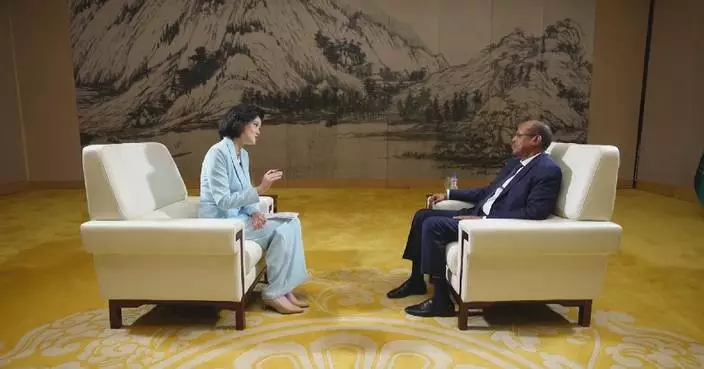
AU Commission chief describes role as challenging yet meaningful
- AU Commission chief expresses optimism about China-Africa ties, extends New Year wishes
- Canadian business official highlights diversification, confidence in China's market
- China launches first tourist train connecting Qinghai-Xizang Plateau, Greater Bay Area, Hainan
- China to launch new special campaigns to facilitate cross-border trade in 2026
- AU chief highlights mutual respect, FOCAC outcomes in China-Africa cooperation
- Cubans honor soldiers killed in US raid in Venezuela
- Caracas sees continued protests against US interference
- AU chairperson highlights people-to-people exchanges as key to China-Africa future
- African Union entry into G20 boosts continent’s voice in global governance: AU chief
Category · News

Pro- and anti-ICE demonstrators face off during Minneapolis immigration crackdown
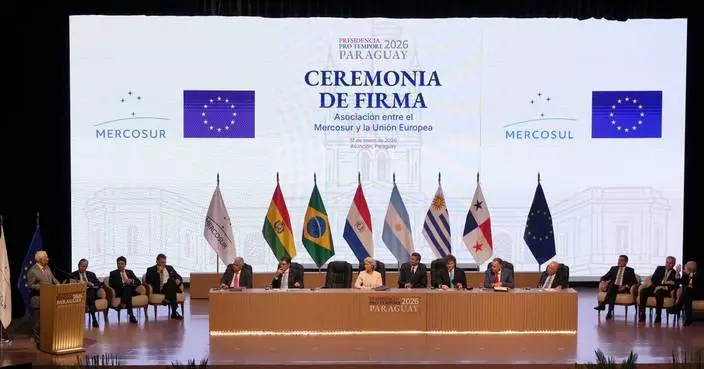
European Union and Mercosur bloc of South American nations sign landmark free trade agreement

Jeremy Fears Jr. scores 19 points in No. 12 Michigan State's 80-63 win over Washington

Nate Schmidt scores twice to help Mammoth beat Kraken 6-3

Packers and coach Matt LaFleur agree to contract extension, AP source says

Thompson scores 23 points, including the 17,000th of his career, as Mavericks beat the Jazz 138-120
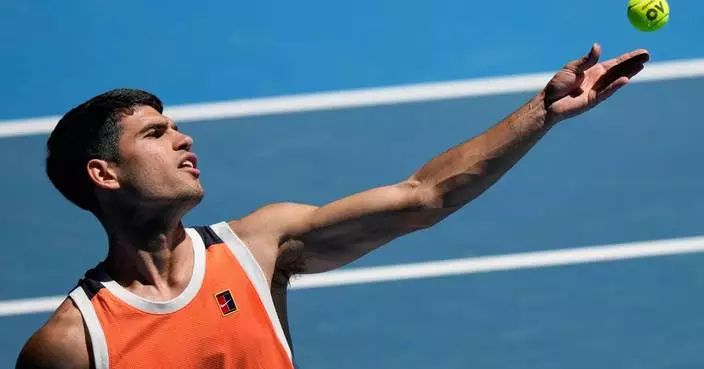
Play begins at the Australian Open with the season's first Grand Slam

NASA's new moon rocket moves to the pad ahead of astronaut launch as early as February

Thousands of fans celebrate life of legendary Grateful Dead guitarist Bob Weir in San Francisco

New York Giants hire John Harbaugh as coach after identifying him as their top choice

Booker returns from injury for the Suns but the Knicks are without Brunson and Hart

Indiana hopes to lean again on its offensive line against fierce Miami defense in CFP title game

Photos show anti-ICE crowd chase off pro-ICE demonstrators from Minneapolis streets
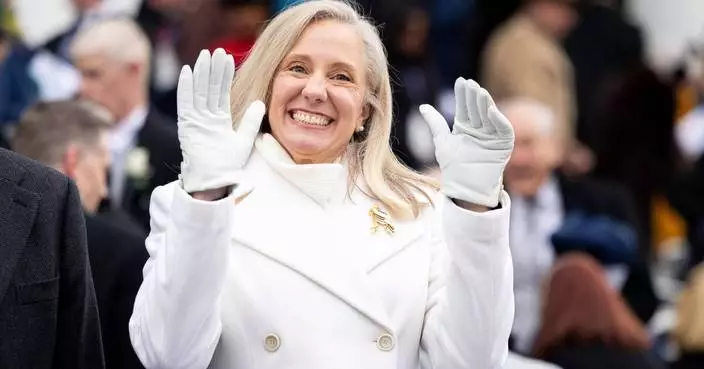
Virginia tradition calls for morning suits at an inauguration. But Spanberger switched things up

Bills rule out Dorian Williams with neck injury after being hurt on opening kick in divisional game

Shota Imanaga's return, Edward Cabrera's arrival, are keys to a formidable Cubs rotation in 2026

Klapka's goal and assist help power the Flames to a 4-2 win over the Islanders

Oilers’ Leon Draisaitl taking brief leave of absence to attend to a family illness

Daryl Watts nets OT winner to help Sceptres snap skid, top Goldeneyes 2-1

Nick Boyd scores 32 points and Wisconsin beats Rutgers 96-87 for 4th straight victory
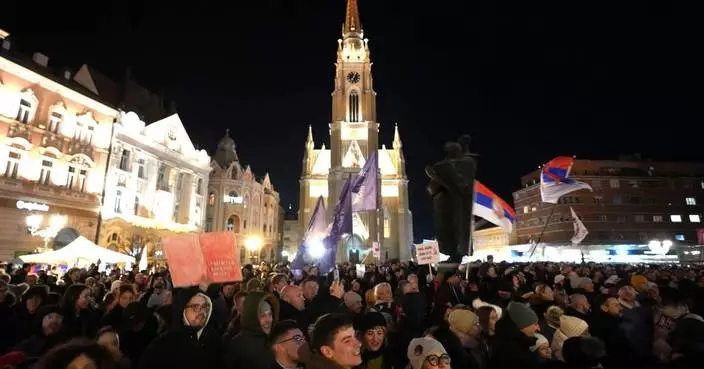
Thousands rally in Serbia as students vow to continue fight against corruption
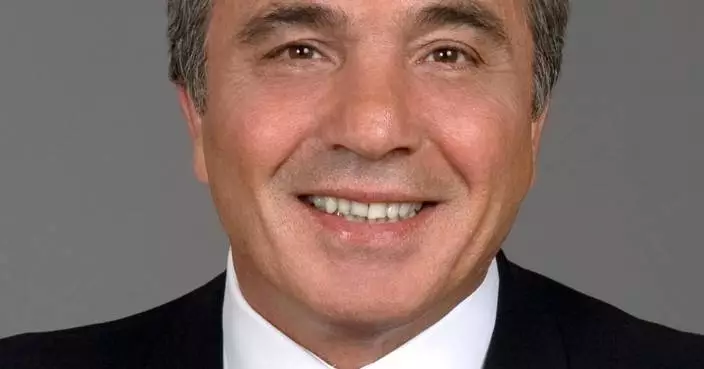
Mediacom Communications Announces Visitation and Funeral Arrangements for Rocco B. Commisso

Rangers' Zibanejad, Sullivan reach career milestones, 1 day after GM's 'disappointment' letter

No. 2 Iowa State loses second straight, 79-70 to Cincinnati

Real Madrid jeered by angry fans before beating Levante in La Liga

Wesley Saïd leads Ligue 1 leader Lens to 10th straight win
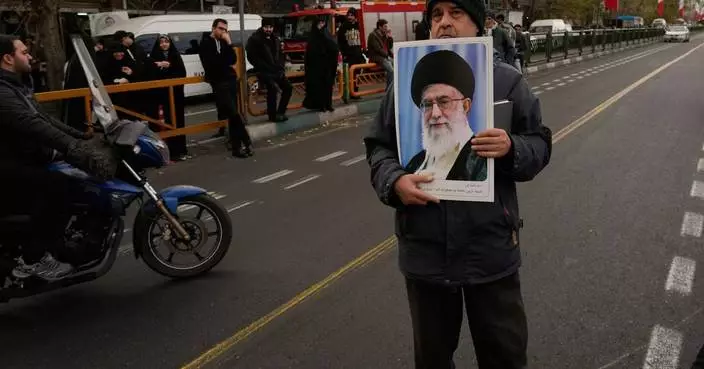
Iran's leader calls Trump a 'criminal' for backing protests and blames demonstrators for deaths

Blast of winter weather hits Midwest and East Coast and could bring snow to Florida

Fournier Beaudry and Cizeron win European ice dance title ahead of Olympics

Williams and Moore score 20 points each, Grand Canyon knocks off No. 23 Utah State 84-74
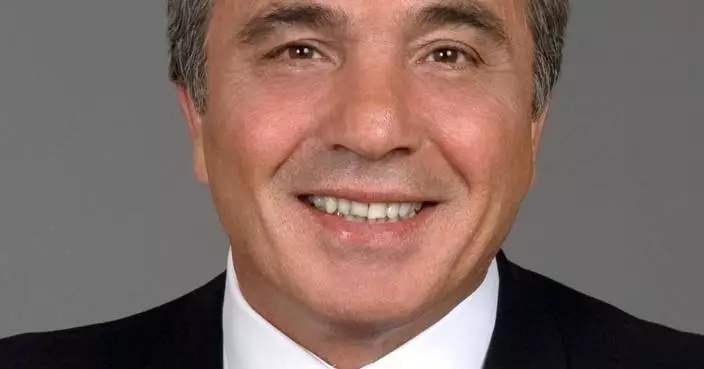
Mediacom Communications Announces Visitation and Funeral Arrangements for Rocco B. Commisso

AP obtains documents showing Venezuelan leader Delcy Rodríguez has been on DEA's radar for years

Morocco's Brahim Díaz is the Africa Cup star thriving away from Real Madrid's turmoil
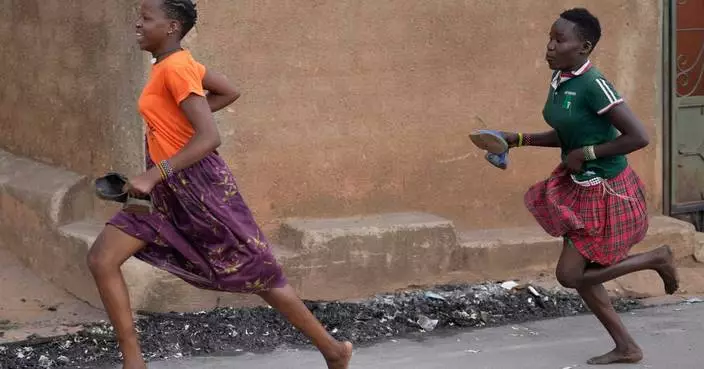
Ugandan President Yoweri Museveni secures 7th term as opposition rejects results

Inter wins at Udinese to fortify Serie A lead before facing Arsenal in Champions League

James retains his Laax halfpipe title with eye on gold at Winter Olympics

Dolphins interview 4 more candidates in their head coaching search
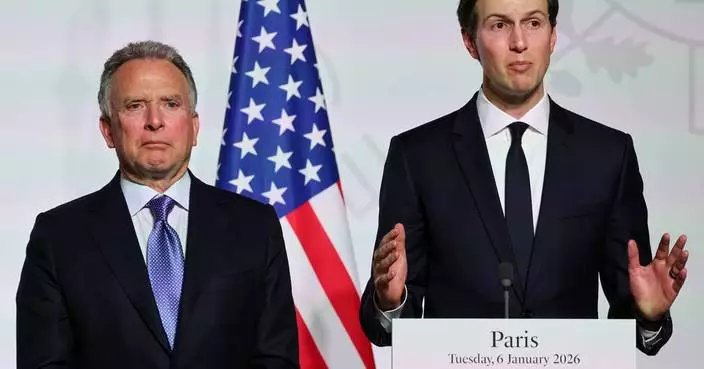
Board of Peace for Gaza is forming with ambitions for a wider mandate of other conflicts

Sen. Thom Tillis takes on the White House, but not Trump

Wide receiver Malachi Toney's rapid rise has Miami on the brink of a national title

Massive fire engulfs dozens of shops at a shopping mall in southern Pakistan, killing 3 people
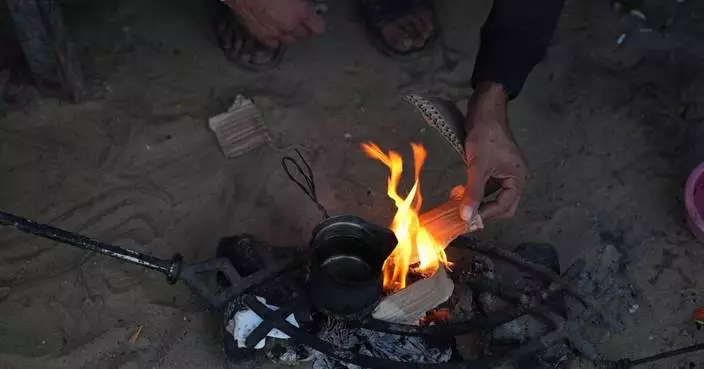
Israel objects to US announcement of leaders who will help oversee next steps in Gaza

Vance and Rubio set to attend Winter Olympics opening ceremony in Italy. Trump isn't on the list
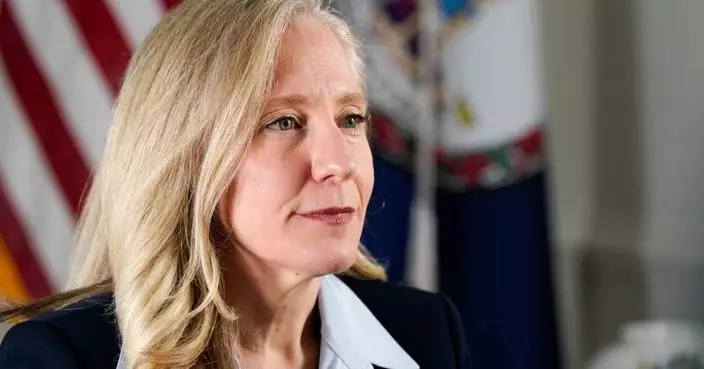
Abigail Spanberger sworn in as Virginia's first woman governor

Thousands march in Greenland to support Arctic island in the face of Trump's threats to take it over

Close friends face off as Indiana and Miami defensive coordinators meet for CFP title

5 skiers killed in a pair of avalanches in Austria
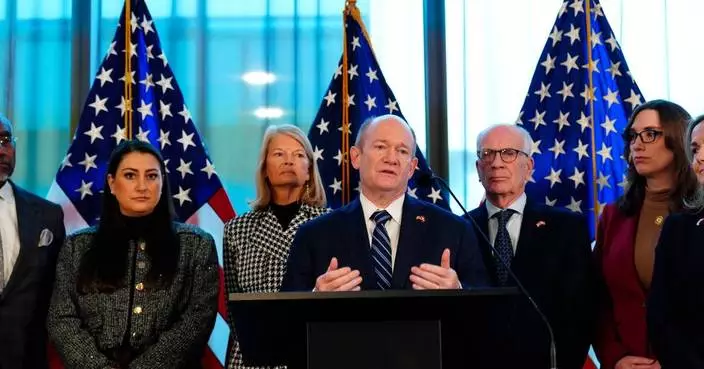
Trump says 8 European countries will face 10% tariff for opposing US control of Greenland

Paris bans gatherings in Champs-Élysées for Africa Cup of Nations final
South Africans rally in solidarity with Venezuela against U.S. aggression

Man United stuns Man City in Carrick's first game and Liverpool and Arsenal drop points

Iraqi army fully takes over key base following US withdrawal
Trump says U.S. to impose tariffs on 8 European nations over Greenland

Bayern survives early scare to win at Leipzig 5-1 in a show of Bundesliga dominance

Photos show Greenlanders brave near-freezing temperatures to march against Trump’s takeover threats

US driver Kaillie Humphries Armbruster wins World Cup monobob race, building Olympic momentum

Nwabali denies Salah, saves 2 penalties as Nigeria beats Egypt for 3rd place at Africa Cup

Syrian government forces enter northern towns after Kurdish fighters withdraw
Russia claims full control of Kupyansk as Ukraine reports continued fighting

Gu warms up for Olympics by retaining her Laax ski slopestyle title despite crash

Resecurity Dominates at ITCN Asia 2026 as the Leading Cybersecurity Innovation Partner
Trump threatens nations not backing his Greenland plan with tariffs
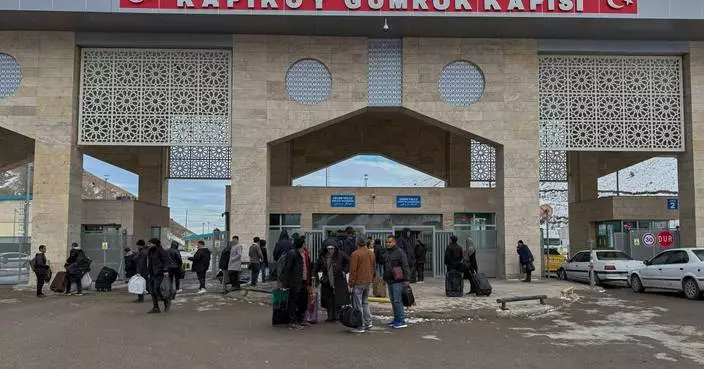
Iranians use Turkey border to access internet during blackouts

Democrat Abigail Spanberger sworn into office as Virginia's first female governor
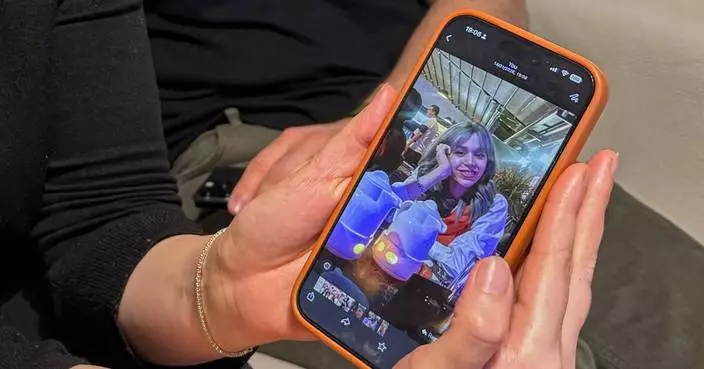
Family of Iranian protester searched for her body in a pile of corpses and buried her on a roadside
Internet blackout recurs in Iran after brief restoration
China to empower innovation, target social needs in 2026 sci-tech push: minister

Why US cities are reverting 1-way streets back to their original 2-way design

Benavides rides to smallest Dakar Rally win margin and Al-Attiyah confirms sixth car title

Orlando Magic star Franz Wagner says he's shaking off rust on European road trip
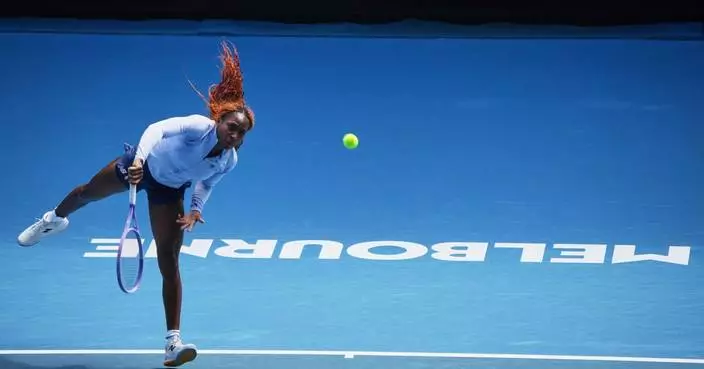
Women's tennis has Coco, Sabalenka, Swiatek and more. The men have 'Sincaraz' at the Australian Open

Senegal coach appeals to Sadio Mané not to make this Africa Cup his last

NFL will honor Martin Luther King Jr. with 'Choose Love' stenciled in end zone

Senegal criticizes lack of 'fair play' before facing host nation Morocco in the Africa Cup final
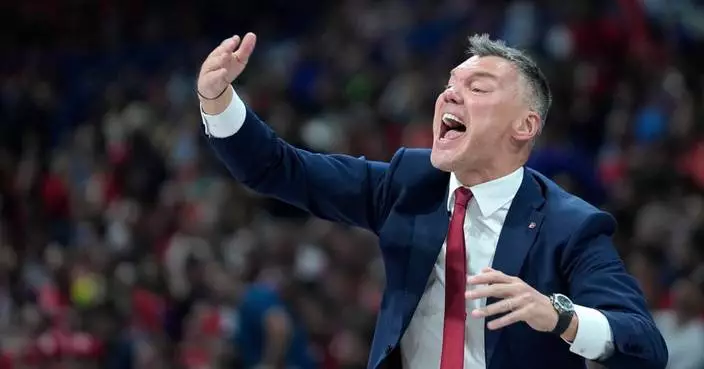
EuroLeague CEO criticizes NBA's ambitious European plan as a 'bit of a broken record'

Horses leap through flames and pets go to church in Spanish animal rituals honoring St Anthony

Grizzlies coach optimistic Ja Morant will play vs Magic in London game

Marco Odermatt claims record 4th downhill victory in Wengen to assert status as Olympic favorite
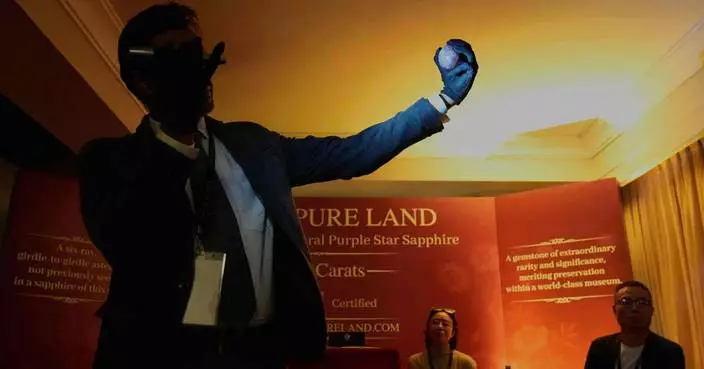
Sri Lanka unveils a rare purple star sapphire claimed to be the biggest of its kind

As Trump's deadline for a cap on credit card rates looms, banks have only questions and no answers

Nicol Delago earns Italy's ski team another win as home Olympics near. Lindsey Vonn 3rd in downhill

How abortion coverage threatens to prevent a congressional deal on health care subsidies
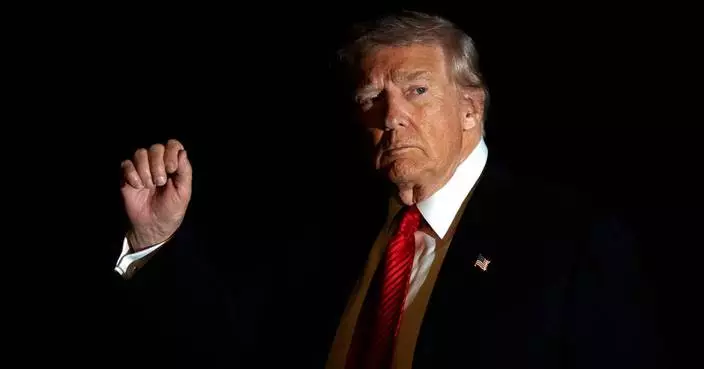
Here's where Trump's most jaw-dropping promises stand a year into his second term

Judge rules feds in Minneapolis immigration operation can’t detain or tear gas peaceful protesters



